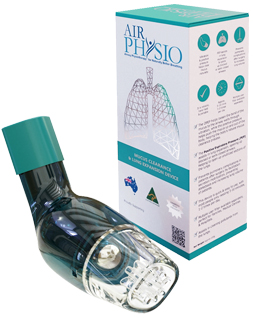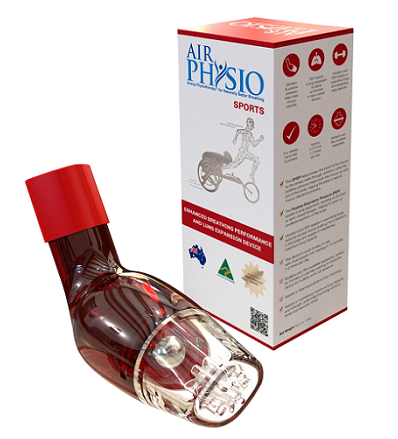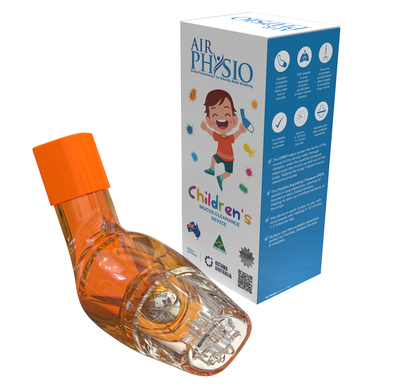Is Asthma an Autoimmune Disease? Here’s What You Need to Know
According to the Centers for Disease Control and Prevention (CDC), more than 19.2 million adults in the country aged 18 and over and 5.5 million children aged 18 and below currently have asthma. This represents 7.7 percent of the adult population and 7.5 percent of the child population in the country.
These figures don’t include the number of people who’ve had asthma at one point in their lives, regardless of how severe it was. Based on that fact, chances are, you either have the condition or know someone with it.
Despite how prevalent it is, asthma is one of the most misunderstood conditions. People with it tend to have a decreased quality of life. They typically shy away from activities like going outside or exercising, which form part of daily living. They’re often afraid of how it might impact their symptoms.
That being said, one of the most frequently asked questions by people with the condition is – Is asthma an autoimmune disease? The answer to this question isn’t as straightforward as you might think. Here’s what you need to know.
The Role Of The Immune System
Before diving into the answer to that question, you first need to understand what the immune system is and the critical role it plays in the human body.
The immune system is essentially an intricate network of organs, cells, and proteins that mount defenses to protect the body against infection. It works a little like a sophisticated database that keeps a record of every microbe (germ) it’s ever defeated. That way, if the same microbe attempts to attack the body again, it immediately recognizes it and annihilates it.
Here’s the thing – as long as your immune system is functioning as it should, you don’t notice it’s there. However, if it is compromised and stops working properly due to weakness or particularly aggressive microbes, that’s when you fall ill.
If your body encounters new germs it has never dealt with before, you will get ill. Some strains of germs may make you sick when you come into contact with them the first time, like chickenpox.
Once you do, however, your body keeps a record of them so that the same pathogens don’t make you ill if you’re ever exposed to them in the future.
Parts Of The Immune System
As mentioned before, the human immune system is an intricate network of organs, cells, and proteins. Here’s a brief overview of the main parts that work to defend the body against microbes.
White Blood Cells

These little fellas are the stars of the show. They are the real MVPs. White blood cells are made in the bone marrow and form part of the lymphatic system – a complex network of sensitive tubes that traverse the entire body.
They move through the blood to every part of the body, “scouting the premises” for any signs of intruders (microbes). These could be in the form of bacteria, viruses, fungi, or parasites.
If they detect the presence of microbes, they launch an immune attack against them. The most common type of white blood cells is lymphocytes. These are made up of cells like the natural killer (NK) cells, T-cells, and B-cells. Other well-known types of white blood cells include macrophages, neutrophils, and eosinophils, each of which performs a different function.
Antibodies
The role of antibodies is to fight both microbes and the toxins they produce. They work by identifying the substance (antigen) on the microbe surface or in the toxin to check whether it is foreign. If it is, they mark them for destruction. The cells and proteins are usually responsible for mounting this attack.
Complement System
The role of this system is to work hand in hand with antibodies to help them in their functions. It is made up mainly of proteins.
Lymphatic System
This is a complex network of sensitive vessels (tubes) that run throughout the body. Some of the functions of the lymphatic system include:
- Absorbing Some Of The Dietary Fats From The Intestines
- Fighting Cancer Cells
- Fighting Cells With Substances That May Result In Diseases Or Disorders
- Managing The Fluid Levels In The Body
- Reacting To Bacteria
The main components of the lymphatic system include the lymph nodes/glands, lymph vessels (tubes), white blood cells (lymphocytes), and lymph (the colorless fluid that transports lymphocytes).
Spleen
The role of this organ is to filter blood to remove microbes and destroy old and/or damaged red blood cells. It also produces antibodies, lymphocytes, and other disease-fighting components of the immune system.
Bone Marrow
This is the spongy tissue inside the bones. It produces red and white blood cells and platelets.
Thymus
This irregular-shaped gland in your chest works to filter and monitor the content of your blood. It also produces a group of white blood cells known as T-lymphocytes.
Other Immune Defenses Against Microbes

In addition to the immune system, the body also has several other ways it uses to defend itself against microbes. These include:
- Digestive Tract – The acid in the stomach, as well as the antibody-rich mucosal lining of the digestive tract, are all equipped to fight microbes
- Lungs – The mucous in the lungs, also known as phlegm, traps foreign particles before the small hairs lining the respiratory tract (cilia) move it upwards to cough it out
- Skin – It is a waterproof barrier that secrets oils (sebum) with antibacterial properties
- Other defenses – Body fluids like tears and saliva contain antibacterial enzymes that minimize the risk of infection
WHAT IS AN AUTOIMMUNE DISORDER?
Now that you understand how the immune system works, the next phase involves understanding some of the common disorders that plague it. It is not uncommon for some people to have an underactive or overactive immune system.
An underactive immune system results in immunodeficiency, which can be an inherited trait, a side-effect of medical treatment such as chemotherapy, or a disease that targets the immune system, such as HIV/AIDS or certain types of cancer.
On the other hand, an overactive immune system may result in allergies or autoimmunity. An allergy is a situation where the immune system mounts an overly strong defense in response to an allergen. Stinging insects, sinus disease, anaphylaxis, hives, eczema, and dermatitis are all examples of allergic reactions.
Autoimmunity results when the immune system mounts an overly strong defense against the normal components of the body. Autoimmune diseases vary depending on the severity of their symptoms and how prevalent they are in the population – some are quite common while others, extremely rare.
Type 1 diabetes, rheumatoid arthritis, multiple sclerosis, and systemic lupus are all different kinds of autoimmune diseases.
IS ASTHMA AN AUTOIMMUNE DISEASE?
With that background information, the next logical question is – Is asthma an autoimmune disease?
Asthma is a condition where the airways swell up, constrict, and/or produce too much mucus making it difficult to breathe. It may trigger shortness of breath, coughing, and wheezing (a whistling sound) as you breathe.

In some people, the condition is nothing more than a minor nuisance. For others, however, it can be life-threatening.
Although it does not have a cure, various treatment options are available to control the unpleasant symptoms. Asthma is considered “severe” when it becomes difficult to manage the symptoms even with treatment.
Before they can classify the condition, a doctor would look at how often you experience the symptoms and how severe they are. There are generally four main classes:
- Mild intermittent – In this category of the condition, an individual experiences mild symptoms for no more than two days a week and two nights a month
- Mild persistent – Here, symptoms occur more than twice a week but limited to once in a single day
- Moderate persistent – An individual experiences symptoms no more than once in a single day and more than one night a week
- Severe persistent – Symptoms occur throughout the day for several days as well as most nights in a single week
The Overlap Between Asthma and COPD
Chronic Obstructive Pulmonary Disease (COPD) refers to a collection of ailments that affect the lungs. They are associated with breathing difficulty and the obstruction of airflow. Diseases that fall into this category include chronic bronchitis, emphysema, and refractory (severe) asthma.
Keep in mind that people with asthma don’t necessarily develop COPD, and people with COPD may not always have asthma. It is, however, quite possible for an individual to have both. When this occurs, it gives rise to a condition known as Asthma-COPD Overlap Syndrome (ACOS), meaning the individual has both diseases at once.
COPD is more prevalent in:
- Existing smokers and people with a smoking past
- People aged 50 to 74
- People with a family history of the condition
- People with a history of refractory asthma
- People with long-term exposure to airborne irritants like smoke and industrial chemicals
The Link Between Respiratory Conditions and the Immune System
Researchers are working tirelessly to unravel the complex mechanisms through which asthma and COPD develop. The two conditions, as well as other respiratory diseases, are often linked to inflammation and the immune system. Here’s why.
The immune system is considered to be a regulator of asthma. The inflammation of the airways results from the over-production of immune factors in response to stimuli that should ordinarily not elicit such a reaction.
The specific immune factors involved in this overly dramatic response are white blood cells – specifically the T-cells, macrophages, neutrophils, and eosinophils. These all play a critical role in the regulation of asthma and other conditions that affect the airways.
Does This Make Asthma an Autoimmune Disease?
Not exactly. Here’s what we know so far. The immune system is an asthma regulator. Specific immune factors are involved in asthma attacks as a response to non-threatening allergens.
Asthma and autoimmune diseases don’t have much in common except for the fact that the immune system is involved in both instances. However, some epidemiological studies have drawn a link between autoimmune asthma mechanisms and those in Type 1 diabetes – a prevalent autoimmune disease.
The hypothesis that asthma could be an autoimmune condition is further supported by the fact that immunosuppressive drugs are effective as a first-line treatment for the condition. Nonetheless, researchers have not been able to conclusively categorize asthma as an autoimmune disease.
However, it is a heterogeneous condition brought about by the chronic inflammation of the respiratory air passages. Although it is triggered by autoimmune mechanisms such as those resulting from an overactive immune system or by exposure to allergens, it is not, by any means, an autoimmune disease.
ADJUSTING TO THE NEW NORMAL
Is asthma an autoimmune disease? The short answer is – no, it’s not. If you get an asthma diagnosis, it’s not the end of the world. You can still live a fulfilling life. You just need to learn how to identify your triggers and get on the best treatment to stay on top of your symptoms.
Be sure to check out our blog to learn more about managing your asthma flare-up.
Average Lung AirPhysio
ENJOY BETTER BREATHING - Use this 100% Drug Free Device - AIRPHYSIO

Recent Posts
Sports AirPhysio
IMPROVE YOUR SPORTING PERFORMANCE - Use this 100% Drug Free Device - AIRPHYSIO

AirPhysio Child
BETTER BREATHING FOR YOUR CHILD - Use this 100% Drug Free Device - AIRPHYSIO

Categories
- asthma (2)
- atelectasis (2)
- bronchiectasis (2)
- copd (3)
- cystic-fibrosis (45)
- featured (10)
- uncategorized (2)


